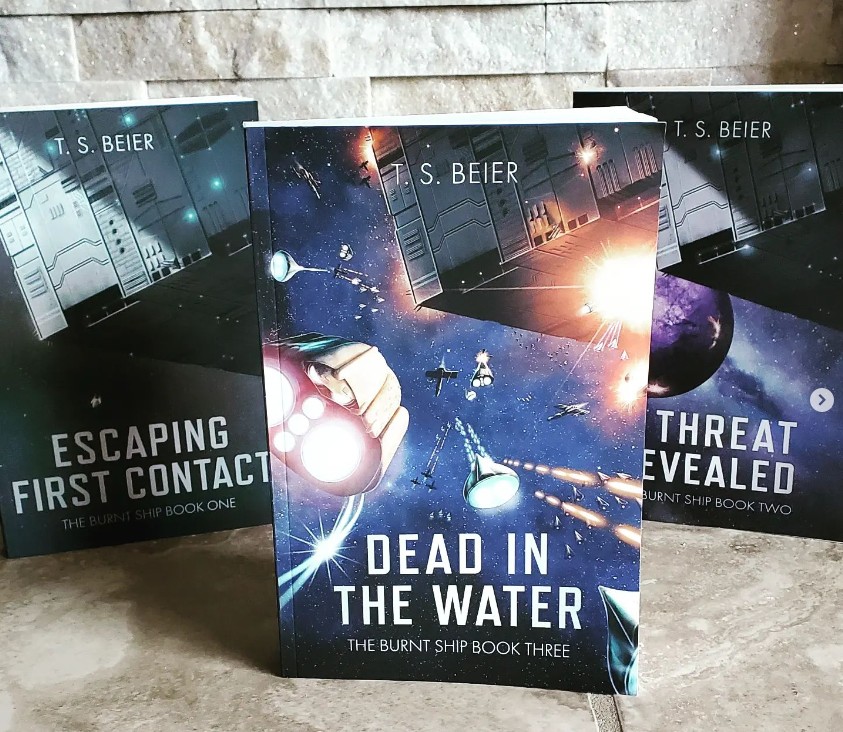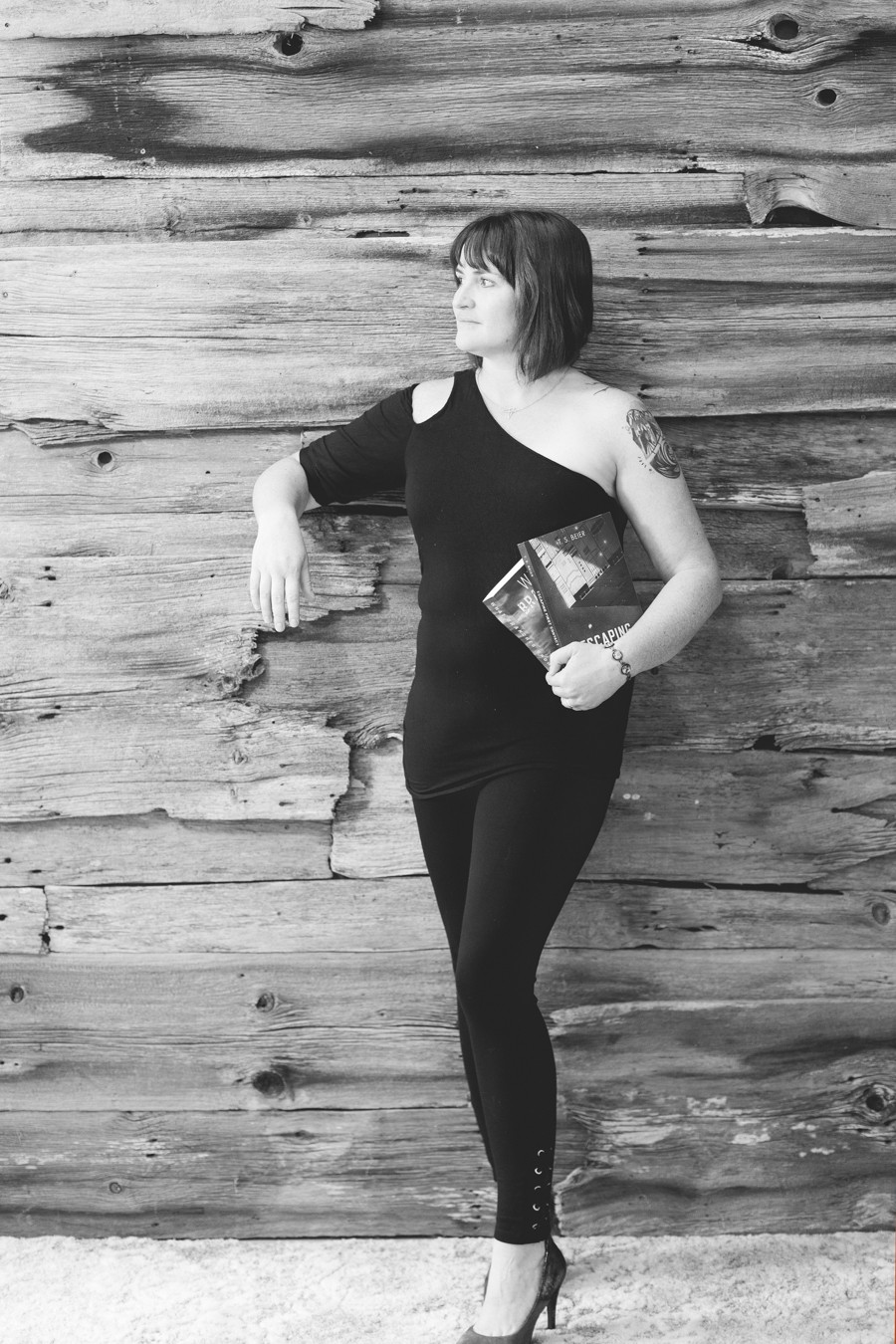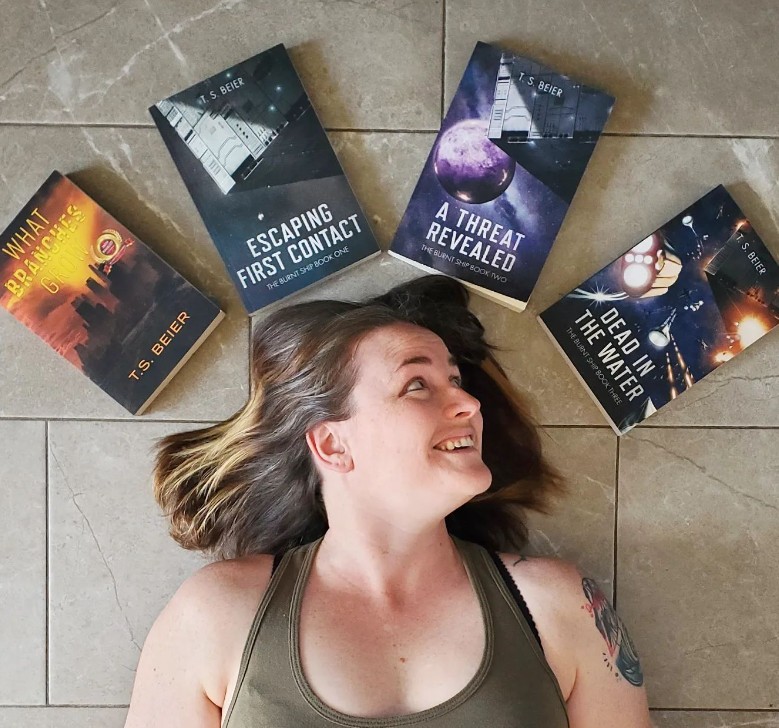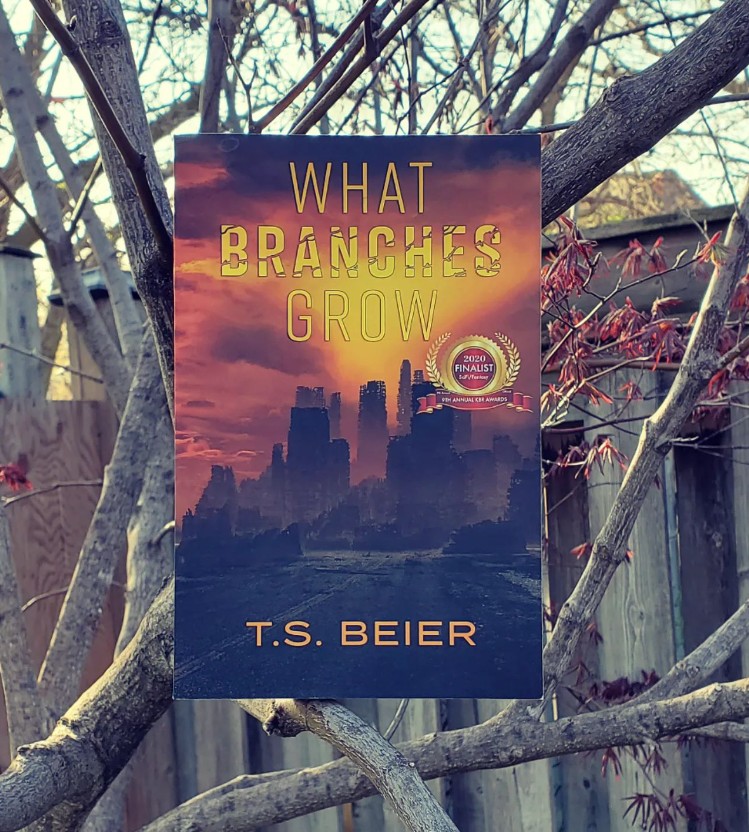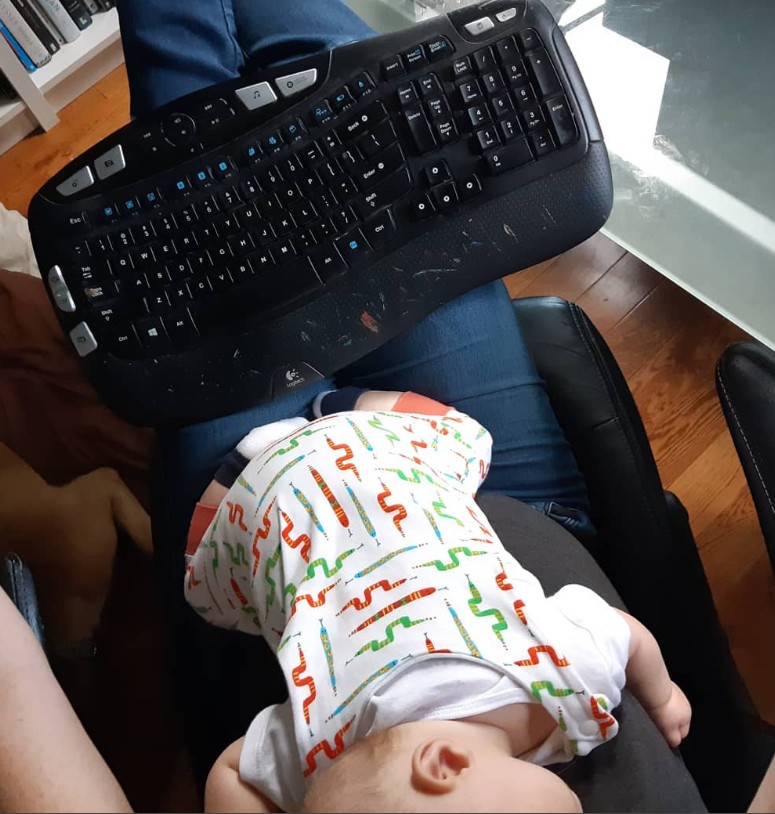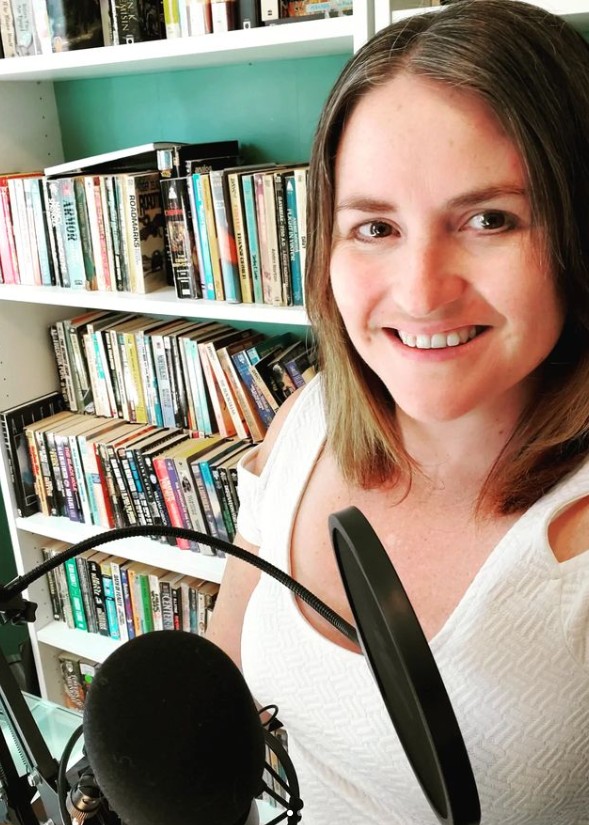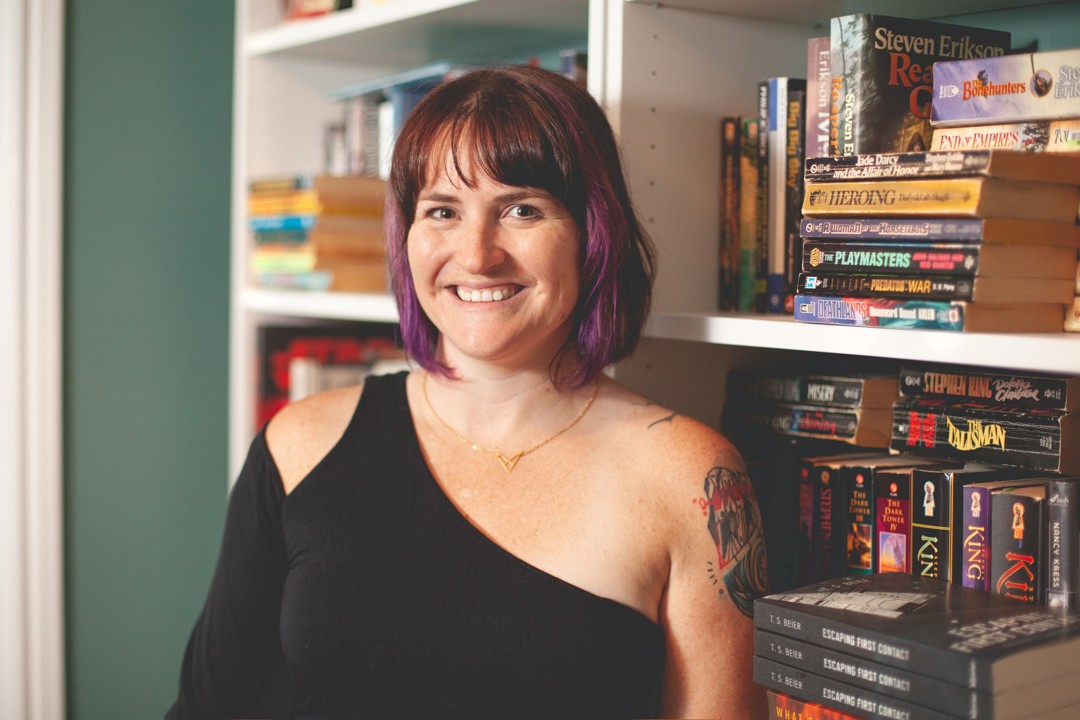We’re excited to introduce you to the always interesting and insightful Tina S. Beier. We hope you’ll enjoy our conversation with Tina S. below.
Tina S. , thanks for taking the time to share your lessons with our community today. So, let’s jump right in – one of the most essential skills for unlocking our potential is self-discipline. Where does your self-discipline come from?
Self-discipline is an interesting concept because it’s something that develops over time, You don’t just wake up one morning and decide to regulate yourself or your life. While there are different definitions of it, I see self-discipline as setting goals and working towards them. When it comes to creative works, for me, this means ensuring I’m making time for my pursuits. While this has served me well, it’s also sometimes a double-edged sword. While being self-disciplined is great for productivity, you also have to ensure that you balance that with self-care, because if you’re too focused on getting stuff done, you can risk burnout or feeling overwhelmed. My self-discipline comes from a mix of nature and nurture. I’m naturally an organized, checklist-driven person, so that might be part of it, but I also had a lot of responsibilities placed on me as a child, forcing me to become self-reliant. This fostered my ability to be self-governing and independent when it comes to work (both career and creative).
Great, so let’s take a few minutes and cover your story. What should folks know about you and what you do?
I’m all about books! My life revolves around novels, whether it’s my job as an editor, my own writing, or my book review social media channels. I’ve always been a voracious reader, devouring books by the boxful, and I was at my local library at least twice a week growing up. When I was twelve, I read a fantasy novel (I can’t recall the book now) where I thought the ending was not very well conceived. I was inspired to try writing my own ending (I suppose this would be considered fanfiction now), and from there, I couldn’t stop. When I complained constantly about losing my floppy disks (yes, floppy disks!), my dad gave me his old work laptop – a Dell with Windows 3.0 on it – and I’ve typed away ever since (I’ve moved on to Chromebook now, though). I finished my first book when I was 13 (this awful Game of Thrones rip-off; this was when Game of Thrones only had 2 books to its series) and, from there, I began writing my own stories. I’ve written six original novels, tons of short stories (mainly fanfiction), and three novellas.
I never seriously considered publishing the novels until I was laid off from my job six years ago. Because I’d always wanted to improve my craft (I’d taken the odd writing course here and there), I decided to take a few months off and pursue my Graduate Certificate in Creative Writing. I was paired with a fantastic mentor, who took the book I thought most worthy of publication (What Branches Grow, a post-apocalyptic adventure with a love story) and made it so much better with her critique. I decided to self-publish because I (stupidly) didn’t realize the marketing and self-promotion required in going that route. That’s the decision you have to make with publishing. If you self-publish, you have to hustle to sell. If you query traditional publishers, you’re generally playing a long waiting game with lots of rejection. Either route is work!
When I was pregnant with my second child (and stuck at home during COVID), I began writing a sci-fi trilogy. I ended up finishing it quite quickly, mainly because when my daughter was born, only slept on me, so I just left her on my chest and typed away during naps. While writing, I decided I needed to approach this book differently than the last, and I needed a platform.
I joined Twitter but soon left it and found my niche with “Bookstagram” and “BookTube.” I began doing self-promo on Instagram, but soon realized the posts I loved doing were reviews of other books. I ended up shifting my account to reviewing (I do the odd self-promo here and there), and I began what became my favourite hobby: my YouTube channel (Sound & Fury Book Reviews). Neither of my channels are large, as, like my writing, I’m more focused on what makes me happy rather than hustling, but I’m devoted to keeping them consistent and with compelling content. I’ve built up reviews on NetGalley (a site where you can get books early from publishers) and have created my strategy with reviews around release dates and trying to stick to science fiction, fantasy, and horror.
Something people tend to forget when we embark on creative pursuits is that we don’t need to have a million followers on Instagram or have a bestseller to be successful. Sometimes, all we need in life to be creative is an outlet with which to share our interests. I’ve found many friends in the book community online with which to share my love of novels. I’m also a judge this year in the Self-Published Science Fiction Competition this year.
And I’m still writing! I currently have three books I’m working on (a historical fiction, a horror, and a fantasy), and I have entered one of my novellas into the traditional publishing grind (where it’s currently being reviewed by a small press).
Writing and reading have also helped my work life, as I’m an editor. I recently was approved to sell my services on Reedsy, but I also have an account on Fiverr. On top of my accreditations and experience, my copious reading outside of work has given me a depth of understanding of not only narrative craft but themes, tropes, and trends. As I said, I’m all about books!
Looking back, what do you think were the three qualities, skills, or areas of knowledge that were most impactful in your journey? What advice do you have for folks who are early in their journey in terms of how they can best develop or improve on these?
Bravery Writing a book is scary. You have no idea what you’re doing, you are plagued with imposter syndrome, and the “failure” rates are high (97% of people who start writing a book never finish). Likewise, when you get your first edit back as a writer, you have to be prepared for critique. As an editor, I’ve had debut authors “freak out” when they see the extent of suggested changes. Part of writing, and everything we do, requires taking risks and not being afraid to make mistakes. And being prepared that no matter how many edits you do, how much work we put into a book, there will be people who don’t like it. The smartest thing an author can do is not look at reviews once you publish. I advise people to have a friend look at the reviews and only send you the glowing ones.
Discipline
Writing a book takes a long time. You either hack away at it for years, or you buckle down and write for hours each night for a few months. However your method (as everyone has different challenges when it comes to making time), you need to be driven to complete it. You have to sometimes force yourself to start, despite the myriad excuses you come up with to push it off. Writing takes a lot of concentration and sometimes emotional fortitude (killing off a beloved character can be very difficult!). If you want to write, you need to be disciplined with yourself about finding time to get it done. We’re all busy and tired, so sometimes it’s just pouring that extra cup of coffee and putting your phone on silent one evening a week after the kids go to bed, or getting to work early to do some writing before you start the day, or telling your partner to get out of the house for a few hours on a weekend so you can concentrate.
Love
You need to love it. There are times when you’re creating that you do wonder why you’re doing it, but in the end, if you love the process, if you’re doing it because you have something to give to the world. For writing, it could be because you have a story to share, characters you want to bring life to, or a world you want to create, you will succeed. My advice for first-time writers is to write what YOU want to read. Don’t “write to market.” While that strategy can work, I sincerely believe your FIRST book should be one that has a place in your heart. The desire to see it come to fruition will compel you more than if you see it as a side-hustle.
What was the most impactful thing your parents did for you?
Reading to me as a child! They were both very instrumental in fostering a love of reading. They never told me to “get my nose out of that book” or limited my interest in reading. My dad saw my love of writing and gave me that computer (which allowed me to work in my own space instead of on the family PC that I had to share with my sisters), and my stepdad read that terrible first novel I mentioned earlier (which was very brave of him). All four of my parents always encouraged me to explore my creative outlets.
Contact Info:
- Website: https://www.nostromopublications.com/
- Instagram: https://www.instagram.com/tinasalwaysreading/
- Youtube: youtube.com/@SoundFuryBookReviews
- Other: Reedsy: https://reedsy.com/tina-beier Fiverr: https://www.fiverr.com/tsbeier Purchase What Branches Grow: https://www.amazon.com/What-Branches-Grow-T-Beier-ebook/dp/B0872J289B/ Purchase Escaping First Contact: https://www.amazon.com/Escaping-First-Contact-Burnt-Trilogy-ebook/dp/B095KPVXFP/
